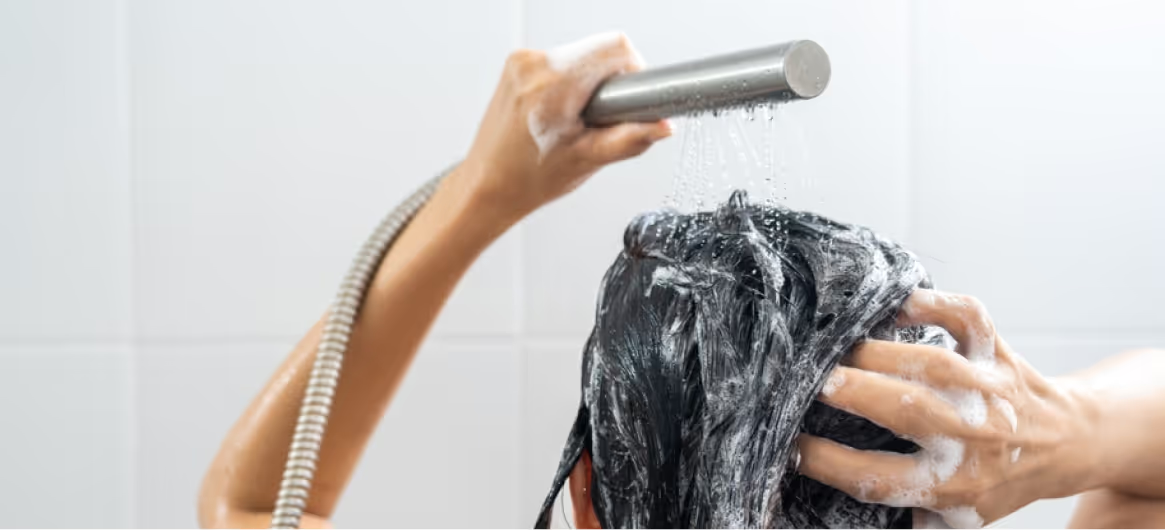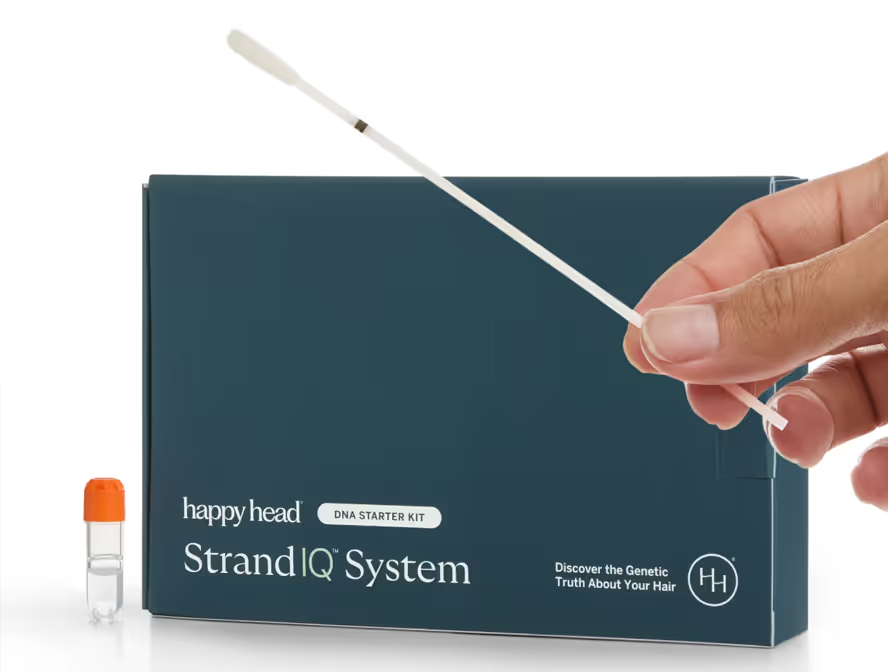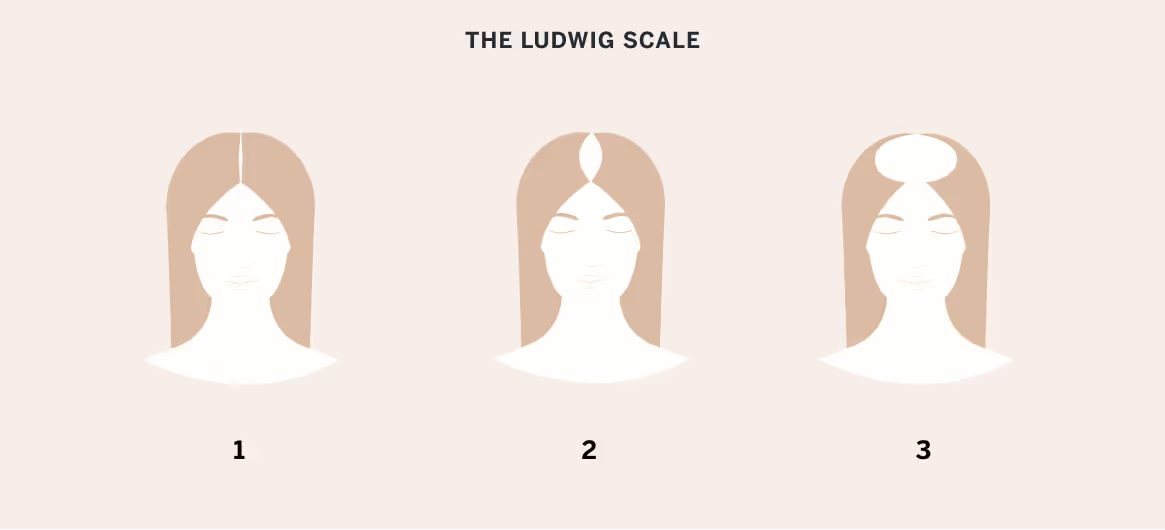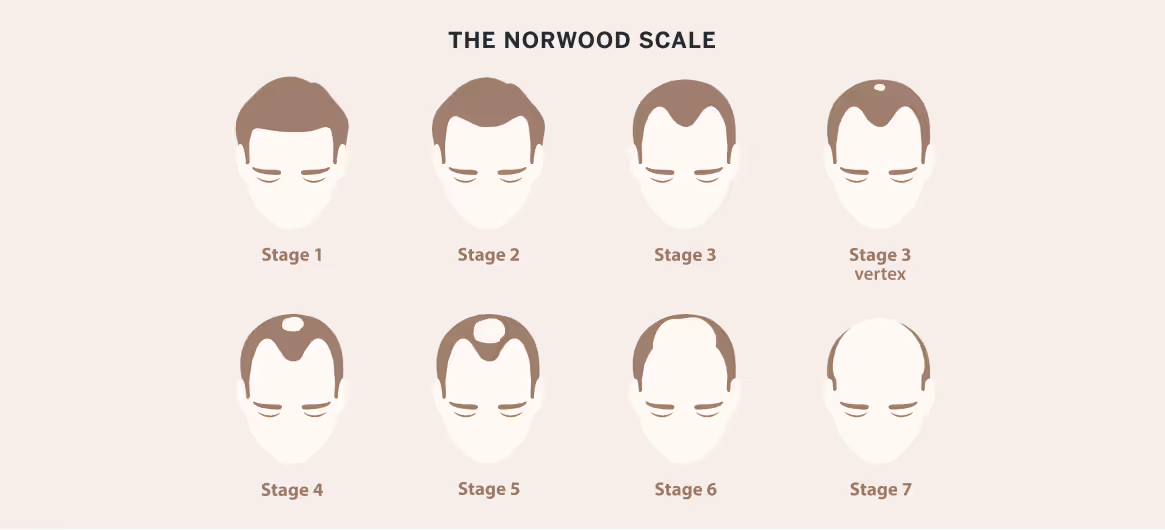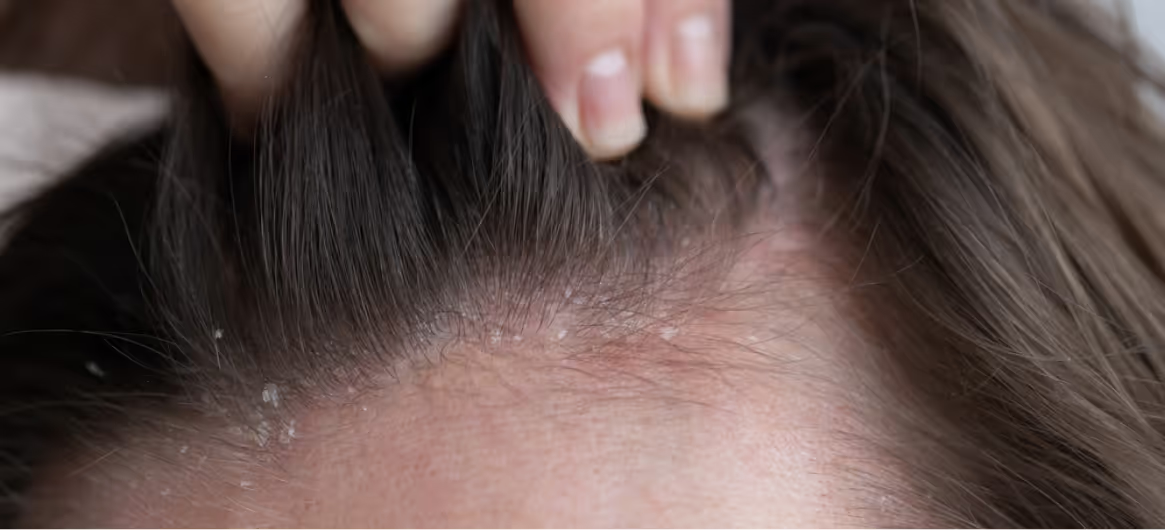Does washing hair every day cause hair loss? While many people worry that daily washing may weaken strands or accelerate shedding, hair loss is primarily influenced by genetics, hormones, stress, and scalp health—not frequency of washing.
How you wash, the products you use, and your hair type are far more important factors. Understanding these nuances can help you maintain a clean, healthy scalp while minimizing breakage and supporting overall hair strength and healthy growth.
Understanding the Hair Growth Cycle
Hair grows in a repeating cycle with four distinct phases. The anagen phase is the active growth stage, lasting 2–7 years. Roughly 85–90% of scalp hairs are in this phase at any given time.
During this time, your hair follicles produce new cells that push older cells up and out, creating the hair shaft you see.
Next is the catagen phase, a brief 2–3 week transitional stage where hair detaches from its blood supply, growth stops, and the follicle shrinks. Only 1–2% of hairs are in this phase at a time.
The telogen phase follows, a resting period lasting around 3–4 months, involving 10–15% of hairs. Old hairs remain in place while new ones begin forming underneath.
Finally, the exogen phase occurs, when hairs are shed from the scalp—typically 50–100 daily—making room for new anagen growth. When you wash your hair, you're simply helping remove these already-loose strands that were ready to fall out anyway.
This continuous cycle ensures a balance between shedding and renewal, though disruptions such as stress, illness, or hormonal changes can shift these percentages and lead to noticeable thinning.
How Often To Wash Different Hair Types
How often you should wash your hair largely depends on your scalp’s oil production and hair type. Each hair type benefits from a tailored routine that keeps the scalp balanced without stripping away essential oils or causing buildup.
Oily Hair
If your hair looks greasy within 24 hours of washing, you likely have an oily scalp that benefits from daily cleansing.
Excess sebum can quickly weigh hair down, making it appear greasy and flat. Skipping washes can lead to clogged follicles and inflammation that might contribute to hair loss.
Daily washing may be especially beneficial for people with fine hair, as it prevents oil from clumping strands together and helps maintain volume. Using a gentle, sulfate-free shampoo can help control oil without stripping your scalp.
Dry Hair
Dry hair typically benefits from less frequent washing—about two to three times per week. Overwashing can strip away natural oils, leaving strands brittle and prone to breakage.
Hydrating shampoos with nourishing ingredients such as argan oil help lock in moisture. Conditioning after each wash is essential to restore softness and manageability.
When you do wash, concentrate shampoo on the scalp rather than the hair. The suds running down during rinsing will clean the rest of your hair without overdrying.
Curly and Textured Hair
Curly and textured hair tends to be drier because natural oils have a harder time traveling down the spiral shape of each strand.
Most people with these hair types find that washing once or twice weekly works best. Products formulated for curls with added moisture and protein support elasticity. Gentle handling is key, as this hair type is more fragile and prone to breakage if overwashed.
Co-washing (using conditioner instead of shampoo) between shampoo sessions can help maintain moisture while still removing some buildup.
Common Myths About Daily Washing
There are several widespread misconceptions about washing hair every day. These myths often cause unnecessary worry and might even lead to poor hair care choices.
Myth #1
One persistent myth claims that frequent washing "trains" your scalp to produce more oil. In reality, sebum production is primarily determined by genetics and hormones, not how often you shampoo. Your scalp won't suddenly start overproducing oil just because you wash daily.
Myth #2
Another false belief suggests that washing strips away a protective layer that prevents hair loss. While sebum provides some conditioning benefits, excess oil can actually harm your scalp health.
Buildup creates an environment where bacteria thrive, potentially leading to inflammation and follicle damage.
Myth #3
Some people worry that the physical act of washing damages hair follicles. Unless you're aggressively scrubbing with your nails, normal washing motions actually benefit your scalp.
Gentle massage during shampooing increases blood circulation to follicles, delivering nutrients that support healthy growth.
Myth #4
Many also believe that expensive, "chemical-free" shampoos are always better for preventing hair loss. However, what actually matters is finding products suited to your specific scalp condition.
Myth #5
Some believe that washing with hard water can cause hair loss. While hard water may not directly cause hair loss, the minerals in hard water build up on the scalp, weakening hair strands over time and amplifying shedding in people who already wash daily.
Does Washing Hair Every Day Cause Hair Loss?
No, washing your hair daily doesn't cause hair loss. Shampooing frequency has no direct impact on the hair growth cycle or follicle health.
What you're seeing in the shower drain are hairs that were already in the telogen phase and ready to fall out naturally.
What can happen with frequent washing is temporary hair breakage if you're too rough or using harsh products.
Wet hair is more fragile than dry hair, making it prone to snapping if handled aggressively. This breakage might look like hair loss, but it's actually just damage to the hair shaft, not the follicle itself.
The real culprits behind hair loss include genetics, hormonal changes, nutritional deficiencies, stress, and certain medical conditions. Daily washing might make existing hair loss more noticeable by removing loose hairs all at once, but it's not the underlying cause.
When Daily Washing May Help Your Scalp
If you struggle with dandruff or excessive oiliness, daily cleansing helps remove the buildup that feeds problematic microorganisms. A clean scalp creates an optimal environment for healthy hair growth by preventing inflammation and keeping follicles clear.
For those who exercise daily or live in humid climates, frequent washing prevents sweat and environmental pollutants from clogging pores.
Sweat contains salt and metabolic waste products that can irritate the scalp if left to accumulate. Regular cleansing removes these irritants before they cause problems.
People with fine or thin hair often find that daily washing adds volume and prevents their hair from looking flat. The natural oils that might enhance thicker hair textures can weigh down fine strands, making them appear limp.
Daily washing also helps those using hair growth treatments and styling products. Many topical medications work best when applied to a clean scalp, and product buildup can interfere with their absorption.
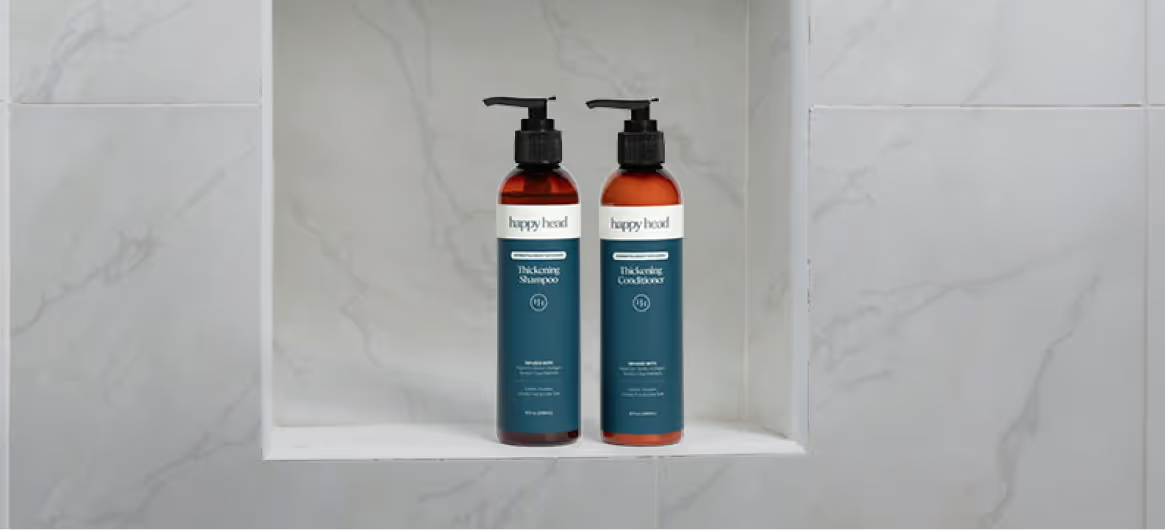
Selecting the Right Shampoo and Conditioner
Choosing the right shampoo and conditioner depends on both scalp condition and hair type. For oily scalps, lightweight, clarifying shampoos help control excess sebum, while dry or color-treated hair benefits from sulfate-free, hydrating formulas.
A high-quality conditioner should be applied mainly to mid-lengths and ends to avoid weighing down roots. Ingredients like ceramides, proteins, or natural oils can strengthen and protect strands.
A dermatologist can guide patients toward medicated options if scalp concerns such as dandruff or dermatitis are present.
Tips for Gentle Daily Washing
If you wash your hair every day, the way you wash is just as important as how often you wash. Small adjustments can protect your scalp and strands, reducing breakage and dryness while maintaining a healthy environment for consistent growth.
Use Lukewarm Water
Hot water strips the scalp of protective oils and weakens the cuticle layer, leaving hair dry and brittle. Lukewarm water effectively dissolves oil and buildup while minimizing damage, making it the healthiest temperature choice for daily washing.
Apply Shampoo Sparingly
You need less shampoo than you think. A quarter-sized amount suffices for most hair lengths. Dilute it with water in your palms before applying. Focus on the scalp where oil accumulates, letting the suds clean the length of your hair as you rinse.
Massage Scalp Lightly
Vigorous scrubbing can irritate the scalp and damage follicles. Instead, use your fingertips—not nails—in gentle, circular motions.
This approach cleans effectively, stimulates blood circulation, and helps distribute natural oils, supporting a healthier scalp environment for hair retention and growth.
Rinse Hair Well
Residual shampoo or conditioner can build up on the scalp, weighing hair down and potentially causing irritation or flaking. Thorough rinsing with lukewarm water ensures products are fully removed, leaving both scalp and strands refreshed, balanced, and free of residue.
Spend at least as much time rinsing as you did washing. Run your fingers through your hair while rinsing to ensure all product is removed.
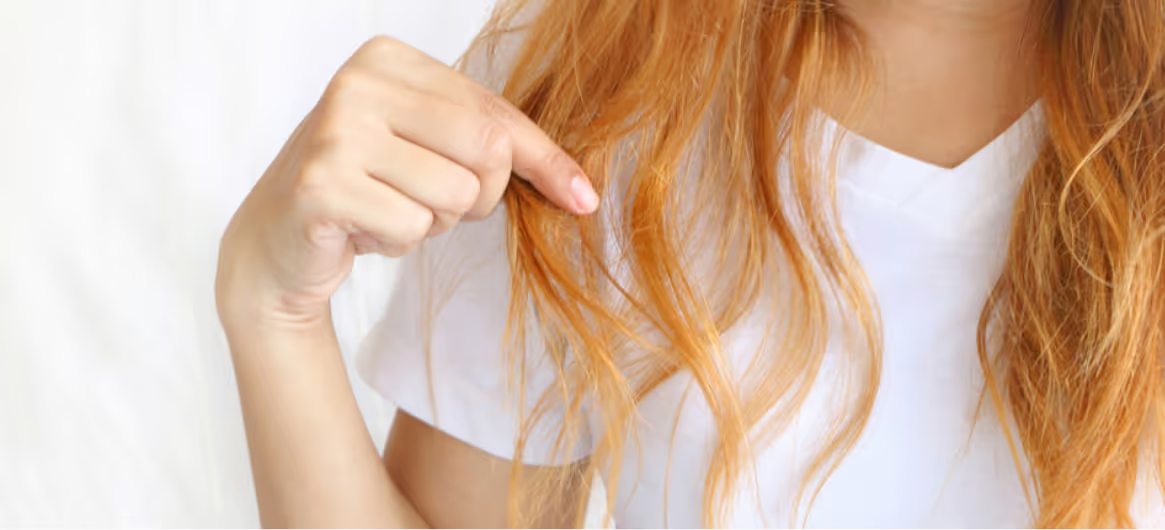
Signs You Need To Wash Less Often
If your hair feels persistently dry, brittle, or frizzy despite conditioning, it may signal overwashing. An itchy or irritated scalp, increased breakage, and dullness also suggest your natural oils are being stripped too frequently.
People with color-treated or textured hair are especially prone to these issues. Adjusting your routine to every few days, or even weekly for certain hair types, can restore balance, improve hydration, and protect long-term scalp and hair health.
Washing Hair Every Day and Hair Loss: The Bottom Line
Washing your hair daily does not directly cause hair loss, but technique, product choice, and genetics all influence scalp health. Recognizing whether you are overwashing or if your scalp benefits from frequent cleansing can help you protect both hair strength and growth potential.
If shedding seems excessive, consulting a dermatologist ensures underlying conditions are addressed early, giving you the best chance to maintain healthy, resilient hair long term.
Talk to a board-certified dermatologist to discuss your goals and find the solution that is best for you.
Frequently Asked Questions
Is it normal to lose a lot of hair every time you wash it?
It’s normal to shed 50–100 hairs a day, and many come out during washing because the process loosens hairs already in the shedding phase. If you notice significant thinning or bald patches, it’s best to consult a dermatologist to rule out underlying conditions.
Will my hair be healthier if I stop washing it every day?
Skipping washing for prolonged periods can lead to a buildup of dead skin, dirt, and oils, potentially clogging hair follicles and leading to hair loss. If you have an oily scalp or use styling products daily, regular washing may keep your hair and scalp healthier. Those with dry or textured hair may benefit from less frequent washing, as natural oils help protect strands.
Does washing your hair every day damage it?
Daily washing itself does not directly damage hair, but using harsh shampoos, hot water, or aggressive scrubbing can weaken the cuticle and cause breakage. Choosing a gentle, sulfate-free shampoo and following with conditioner helps protect your hair even if you wash every day.
Can washing your hair every day cause hair growth?
Washing your hair daily won’t trigger new growth, but it can support scalp health by removing excess oil, dirt, and buildup that might clog follicles. A clean scalp provides the optimal environment for healthy hair growth, but genetics and overall health play the most significant roles.





